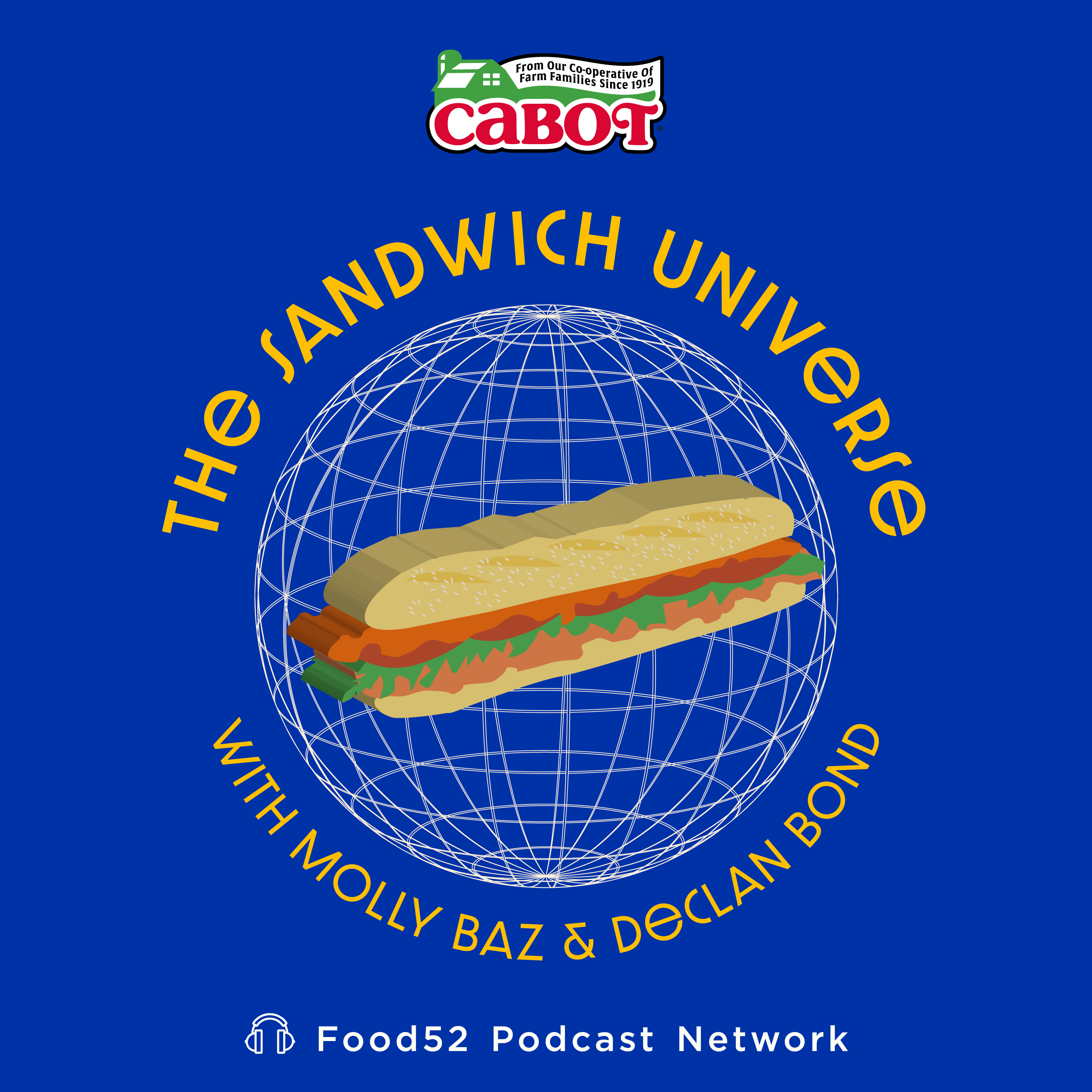
Join The Sandwich Universe co-hosts (and longtime BFFs) Molly Baz and Declan Bond as they dive deep into beloved, iconic sandwiches.
Listen NowPopular on Food52
Continue After Advertisement
13 Comments
Sranger
October 19, 2020
I see labeled Jumbo eggs at the grocery stores but they don't look like them? They look like Small eggs! WTH! But they cost extra! RIP off.
Maggie L.
January 19, 2019
Recently I was making hard boiked eggs. I had part of a carton of dozen large eggs and added in a few from a Costco batch. The Costco eggs were also marked large but they were noticeably snaller than my grocery store eggs. Are Costco eggs really large as labeled?
gwyn
March 18, 2018
So the USDA is grading on the weight of eggs in the shell, but we should weigh once cracked?
Smaug
March 18, 2018
The USDA weights, as stated in the article, are averages, so not of much use in a recipe. At any rate, when making a recipe you need to weigh ingredients in the same way that the author did, which good recipe writers will make clear.
gwyn
March 18, 2018
Yes, i understood they are averages. I bake on a weekly basis and very rarely run across a recipe in which the weight of the eggs is indicated or addressed at all. I just did a quick audit of my cookbooks, and the only one indicating weight is the Bouchon Bakery cookbook. The only one addressing weight in the ingredient section is Baking Illustrated, which lists 2 oz for large, but does not say if that is the whole egg or cracked (and the context is how to use the equivalent amount of egg substitute.) The reason I am interested in this is that i now purchase eggs from a farmer, and each dozen has eggs from a variety of breeds of hens, so they vary greatly in size, and some have very thick shells. I usually just wing it, but recipes such as macarons and meringues are more affected by the egg weight. Also, many people use recipes they find on-line, so there is no ingredient section to reference.
Smaug
March 18, 2018
No, I don't remember coming across many recipes with egg weights, and few with volumes. Bakers actually did fine without such things for centuries, but it would seem that if you're trying to sort your eggs medium-large etc. weighing them in shell would be the only choice. Your farmer's eggs are likely to be of higher quality than what's available at the supermarket- probably that's why you use them- so they aren't going to behave precisely the same in recipes. Baking isn't really as exact as people like to say- you'll do fine with a modicum of common sense. People who find recipes online (or in newspapers and magazines) are taking their chances; on some sites- such as this one- you may be able to get questions answered by the recipe's author, but in general you're going to be flying blind to some extent. Cooking wouldn't be any fun if you could just look it up on your telephone and know how to do it.
William G.
March 15, 2018
If the cook is making an omelet, fried eggs, scrambled eggs etc (you get the drift) extra large are fine. But when it comes to baking, a large or medium egg is best
Greenstuff
March 15, 2018
Eggs vary so much these days--shell thickness, percent yolk, quality. I'd love to see an article that looked deeper.
ktr
March 15, 2018
Is the weight for the egg including the shell, or should the egg be weighed after cracking it?
Heather Z.
May 18, 2019
If you're talking about individual eggs for grading, they are weighed in the shell. For liquid egg weight for baking and cooking, it is without the shell.
Smaug
March 14, 2018
Most good recipe writers will tell you what they mean- once again (my second time today)- read the ingredient section at the beginning of the book; it contains information that will be taken as read throughout. Some extra fastidious writers give egg use by volume- still, the proportion of yolk to white can vary...
Bobbie
March 14, 2018
Ironically, Costco only sells large eggs. I prefer extra-large eggs for frying or poaching and large for baking. I'm pretty sure that Ina Garten uses extra-large in her baking recipes.








Join The Conversation